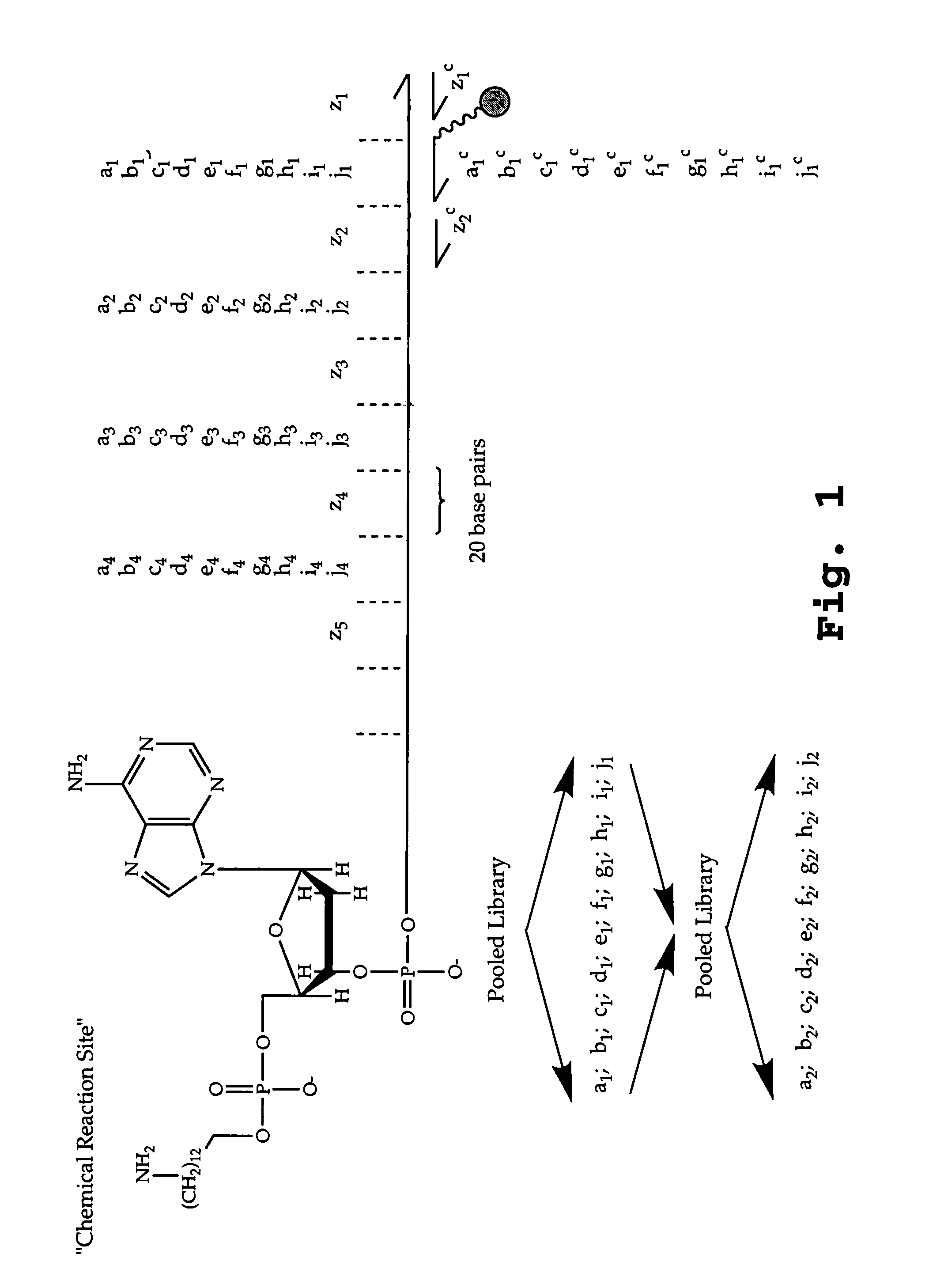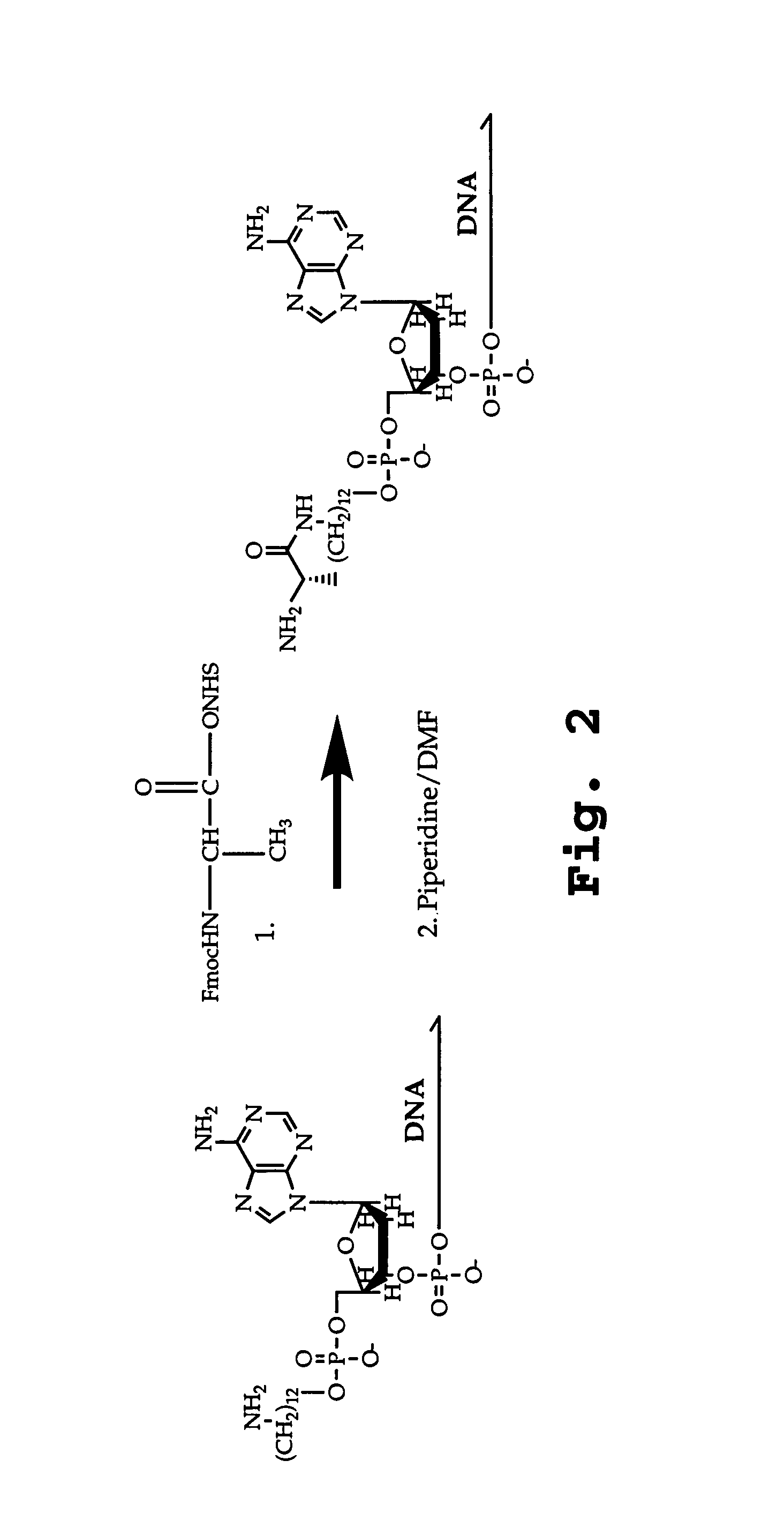DNA-templated combinatorial library chemistry
a combinatorial chemistry and compound technology, applied in the field of synthesizing a dnatemplated combinatorial chemistry library of compounds, can solve the problems of combinatorial library formation, inconvenient manipulation of a large array of separate reaction vessels, and limit the usefulness of this approach for the preparation of very large libraries
- Summary
- Abstract
- Description
- Claims
- Application Information
AI Technical Summary
Benefits of technology
Problems solved by technology
Method used
Image
Examples
Embodiment Construction
I. Definitions
[0037]The term “combinatorial library” is defined herein to mean a library of molecules containing a large number, typically between 103 and 106 different compounds typically characterized by different sequences of subunits, or a combination of different sequences of side chains and linkages.
[0038]The term “combinatorial library of subunit oligomers” is defined herein to mean a set of oligomers containing substantially each sequence permutation that can be formed by placing a selected one of a number of different subunits at each of a selected number of residue positions. “Different-sequence oligomer compounds” are oligomers, such as oligonucleotides, oligonucleotide analogs, oligopeptides, oligopeptide analogs, oligosaccharides, or lipopeptides with different permutations of lipid and / or sequences in the peptide moieties, glycopeptides with different sequence permutations in the saccharide and / or peptide moieties, non-biological oligomers with different-sequence permu...
PUM
| Property | Measurement | Unit |
|---|---|---|
| temperatures | aaaaa | aaaaa |
| temperatures | aaaaa | aaaaa |
| temperatures | aaaaa | aaaaa |
Abstract
Description
Claims
Application Information
 Login to View More
Login to View More - R&D
- Intellectual Property
- Life Sciences
- Materials
- Tech Scout
- Unparalleled Data Quality
- Higher Quality Content
- 60% Fewer Hallucinations
Browse by: Latest US Patents, China's latest patents, Technical Efficacy Thesaurus, Application Domain, Technology Topic, Popular Technical Reports.
© 2025 PatSnap. All rights reserved.Legal|Privacy policy|Modern Slavery Act Transparency Statement|Sitemap|About US| Contact US: help@patsnap.com


